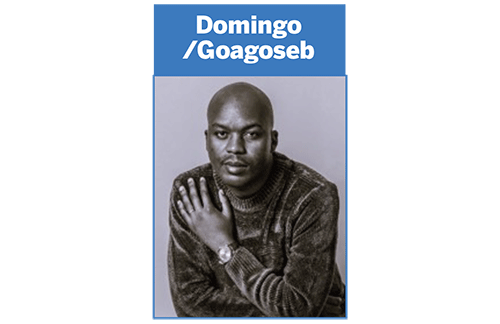With the 2024 elections on the horizon, Namibia finds itself at a pivotal moment, a crossroads marked by a cloud of uncertainty.
As political analysts critique the various scenarios that could unfold, it’s crucial to recognise that within this fog of uncertainty, a profound shift in voter behaviour is taking shape.
Unlike the past, where party affiliations and historical ties played a dominant role in elections, a transformation is occurring, driven by an educated and well-informed electorate. These voters are seeking politicians who can present a comprehensive fiscal policy to address Namibia’s pressing economic conditions, particularly the challenge of achieving an equitable distribution of wealth.
One of the defining characteristics of the 2024 electorate in Namibia is their education and awareness. Unlike previous generations, voters today are well-informed about both local economic dynamics and global factors that could impact the nation’s prosperity. The era of voting based solely on familial or historical connections is waning, replaced by an electorate that craves clarity, coherence, and pragmatic fiscal policies as the solution to the country’s challenges.
Equity
Central to this voter behaviour, transformation is an unequivocal call for economic equality. Informed voters now understand that a balanced distribution of wealth is not just necessary for growth but also for fostering social harmony. Mere political rhetoric is no longer sufficient; this electorate demands concrete fiscal policies that directly address wealth disparities and outline actionable steps toward a fairer society.
Beyond party lines
The approaching elections in Namibia signify a departure from traditional party affiliations in favour of policy-oriented voting. This shift is exemplified by voters’ thirst for detailed fiscal strategies, particularly those related to tax reform. In an era of transparency and accountability, candidates who can articulate progressive taxation, advocate for tax cuts benefiting lower and middle-income citizens, and provide transparency in tax collection and expenditure allocation are gaining favour.
Enhanced engagement
This evolution of voter behaviour is not merely a change in preference; it’s an elevation of political engagement. The demand for substantive fiscal debates is on the rise, with voters yearning for candidates to move beyond slogans and promises. This shift signifies a maturing political landscape, one where candidates must not just promise change but demonstrate their tangible plans to deliver it.
The shift observed in Namibia’s voter behaviour aligns with a broader pattern seen in the evolution and maturation of democracies. It marks the transition from sentiment-driven affiliations to a more pragmatic and policy-focused approach. The trajectory Namibia is currently on mirrors the trajectory of democracies worldwide, showing that an informed electorate is a pivotal force driving change and demanding accountability from elected leaders.
Global parallels
Namibia’s journey towards a more informed and policy-oriented electorate resonates on a global scale. The 2020 United States elections serve as a prime example, where voters prioritised fiscal responsibility and transparent governance over historical party allegiances. The 2021 elections in Zambia further emphasised this transformation, propelled by a young and well-informed electorate that centred their decision-making on fiscal policies and wealth distribution.
These instances underscore that the evolution of voter behaviour is not isolated but is instead a reflection of the global trajectory towards engaged and informed electorates.
Amid the shifting sentiments lies a beacon of hope and transformation. The shift in voter behaviour towards a more educated and policy-driven electorate signifies a new era of political engagement.
The days when historical affiliations and allegiances influenced electoral choices are fading, replaced by a generation that demands comprehensive fiscal policies and equal wealth distribution. This transformation is a testament to the maturation of Namibia’s democracy, with its citizens recognising their power to shape their nation’s future. As the nation stands on the precipice of change, it becomes clear that an informed, engaged, and policy-oriented electorate is the bedrock of a thriving democracy. The evolving dynamics of voter behaviour are shaping a brighter and more accountable future for Namibia.
* Domingo /Goagoseb is a cultural apologist. His views are written in his personal capacity and does not represent any organisation. He can be reached at domingogoagoseb@gmail.com


